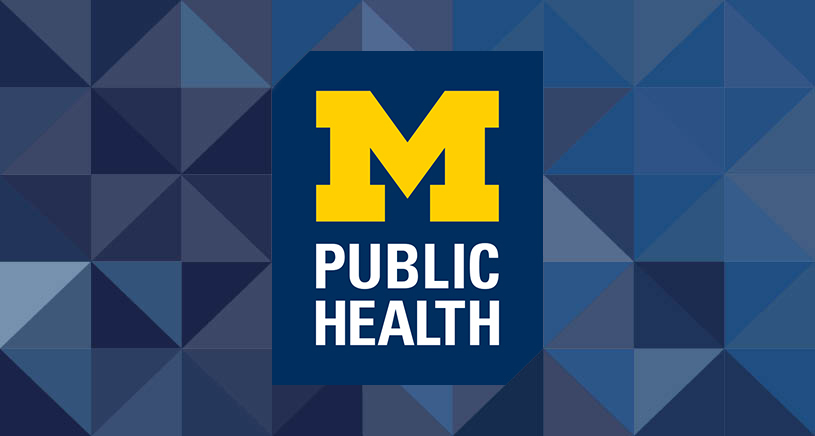Health Management and Policy Courses
HMP540: Legal Rules and Ethical Issues for Clinical Research
- Graduate level
- Residential
- term(s) for residential students;
- 2-3 credit hour(s) for residential students;
- Instructor(s):
- Prerequisites: Enrollment in OJOC/CRDSA Program
- Description: The course is organized in two parts: Part I studies the history of research regulations, requirements for ethical research, informed consent, institutional review boards, protection of special at-risk populations, deception in research, and future directions of regulations on research. Each participant presents a research design and the class analyzes its legal aspects. Part II focuses on ethical issues in clinical research.
- Syllabus for HMP540
HMP565: Spreadsheet Modeling
- Graduate level
- Executive Masters
- Fall term(s) for Executive Masters students;
- 1 credit hour(s) for Executive Masters students;
- Instructor(s): David Mendez (Executive Masters);
- Prerequisites: none
- Description: This course introduces the students to the use of spreadsheets for decision-making. It covers data manipulation and analysis, formating and charting using Microsoft Excel.
- Syllabus for HMP565

HMP600: The Health Services System I
- Graduate level
- Both Executive Masters and Residential
- Fall term(s) for Executive Masters and residential students;
- 3 credit hour(s) for Executive Masters and residential students;
- Instructor(s): Denise Anthony (Residential/Executive Masters);
- Prerequisites: Enrollment in HMP or Perm Instr
- Description: First part of two-course sequence focusing on major issues in the organization of a health services system: role of values; assessment of health status; analysis of need, access and use of services; current supply and distribution of health resources; analysis of health care costs and expenditures. Students enrolling in HMP 600 are expected to also complete HMP 601.
- Syllabus for HMP600

HMP601: Healthcare Quality, Performance Measurement and Improvement
- Graduate level
- Both Executive Masters and Residential
- Winter term(s) for Executive Masters and residential students;
- 3 credit hour(s) for Executive Masters and residential students;
- Instructor(s): Michael Thompson (Residential/Executive Masters);
- Offered every year
- Prerequisites: HMP 600
- Description: HMP 601, building on the material in HMP 600, focuses on: the definition and assessment of quality of care; control of quality and costs of care through market-oriented strategies, professional self-regulation, intra-organizational process improvement approaches, third-party strategies, and government regulation; and system reform.

HMP603: Organization and Management of Healthcare Systems
- Graduate level
- Executive Masters, Residential and Online MPH
- This is a second year course for Online students
- Fall, Winter term(s) for Executive Masters and residential students; Fall term(s) for online MPH students;
- 2-3 credit hour(s) for Executive Masters and residential students; 2 credit hour(s) for online MPH students;
- Instructor(s): Christine Stead, Michael Rubyan, (Residential/Executive Masters); Michael Rubyan (Online MPH);
- Offered every year
- Prerequisites: HMP Masters Standing or Perm Instr
- Description: Focuses on servant and transformational leadership from the perspective of buyers, insurers, policy makers and leaders of nonprofit health organizations to understand how to deliver high quality, cost effective health care and reach and implement decisions about future activities and the best managerial practices for non-profit advocacy and community-based organizations.
- Syllabus for HMP603


| Department | Program | Degree | Competency | Specific course(s) that allow assessment | HMP | MPH | Develop strategies to continually improve the long-term success and viability of an organization, based on an analysis of the business, demographic, ethno-cultural, political, and regulatory implications of decisions | HMP603, HMP604 |
|---|
HMP604: Organization and Management of Health Advocacy and Community-Based Non-profits
- Graduate level
- Residential
- Fall term(s) for residential students;
- 3 credit hour(s) for residential students;
- Instructor(s): Michael Rubyan (Residential);
- Prerequisites: HMP Graduate Standing or PI
- Undergraduates are allowed to enroll in this course.
- Description: This course is one of two HMP courses that fulfills the organization theory/management degree requirement. These courses provide knowledge of the theories of organizations, the use of leadership, management processes, and organizational structures and outcomes. Specific topics include governance, strategic management and marketing, human resources management, and process improvement. Nonprofit advocacy and community-based organizations face unique challenges related to their mission and ownership, including a greater need to motivate employees through culture and to integrate volunteers into the workforce and to manage complex stakeholder relations within communities. All this must be done with scarce resources and frequently, small budgets and workforces. This course includes analysis of the goals, environmental conditions and organizational structures of nonprofit health organizations, including a variety of smaller (and largely, non-medical) community-based nonprofits. Examples of the best managerial practices for these types of organizations and of commonly known NGOs and other nonprofits are used throughout the course.
- Syllabus for HMP604

| Department | Program | Degree | Competency | Specific course(s) that allow assessment | HMP | MPH | Develop strategies to continually improve the long-term success and viability of an organization, based on an analysis of the business, demographic, ethno-cultural, political, and regulatory implications of decisions | HMP603, HMP604 |
|---|
HMP605: Applied Statistics For Healthcare Administration
- Graduate level
- Residential
- Fall term(s) for residential students;
- 3 credit hour(s) for residential students;
- Instructor(s): David Mendez (Residential);
- Prerequisites: None
- Description: Introduction to statistics with applications to problems that arise in the field of health management and administration. The students will be exposed to basic probability theory, sampling distributions, hypothesis testing, analysis of variance, simple and multiple regression analysis, and logistic regression. All the analyses will be conducted using Microsoft Excel.
- Learning Objectives: Students will develop skills in i) formulating an abstract statistical model of a health management- or policy-related problem; ii) choosing the appropriate statistical technique to analyze the problem iii) translating the solutions to the problem from the statistical model back into the original “real world” situation.

HMP606: Managerial Accounting for Health Care Administrators
- Graduate level
- Executive Masters, Residential and Online MPH
- This is a second year course for Online students
- Fall, Winter term(s) for Executive Masters and residential students; Winter term(s) for online MPH students;
- 3 credit hour(s) for Executive Masters and residential students; 2 credit hour(s) for online MPH students;
- Instructor(s): Simone Singh (Residential/Executive Masters); Simone Singh (Online MPH);
- Prerequisites: None
- Advisory Prerequisites: HMP 608 and HMP 660 (residential students only)
- Description: Concepts and techniques of managerial accounting for generalist health care administrators. Topics covered include full cost measurement, differential cost measurement and analysis, sources of revenue, price setting, budgeting and control, costs and decision-making fund accounting
- Syllabus for HMP606

HMP607: Corporate Finance for Health Care Administrators
- Graduate level
- Executive Masters, Residential and Online MPH
- This is a second year course for Online students
- Fall term(s) for Executive Masters and residential students; Winter term(s) for online MPH students;
- 3 credit hour(s) for Executive Masters and residential students; 3 credit hour(s) for online MPH students;
- Instructor(s): Jeffrey McCullough (Residential/Executive Masters); Jeffrey McCullough (Online MPH);
- Prerequisites: HMP606
- Description: Corporate finance theory and applications to health care organizations. Topics include the capital expenditure decision, the capital financing decision, financial feasibility, financial planning, cash management, and financial aspects of prepayment programs. The course makes extensive use of case studies.
- Syllabus for HMP607

HMP608: Health Care Financial Accounting
- Graduate level
- Both Residential and Online MPH
- This is a second year course for Online students
- Fall term(s) for residential students; Winter term(s) for online MPH students;
- 1-2 credit hour(s) for residential students; 2 credit hour(s) for online MPH students;
- Instructor(s): Simone Singh, Matthew Comstock, (Residential); Matthew Comstock (Online MPH);
- Prerequisites: none
- Description: This course provides an overview of financial accounting for students interested in health care management and policy. It is designed to serve the needs of both students who have never had a course in financial accounting (for 2 credits) and students who have had an introductory course in financial accounting but without health care applications (for 1 credit).
- Syllabus for HMP608


| Department | Program | Degree | Competency | Specific course(s) that allow assessment | HMP | MPH | Healthcare financial accounting. | HMP608 |
|---|
HMP609: Special Topics in Corporate Finance
- Graduate level
- Residential
- Winter term(s) for residential students;
- 3 credit hour(s) for residential students;
- Instructor(s): Kyle Grazier (Residential);
- Prerequisites: Financial accounting course or knowledge
- Description: Introduction to finance ratios, forecasting methods, capital structure theory, and risk-return analysis. Case-based application of these concepts using several different approaches to valuing a business. Exercises to determine the value of the investment, analyze current financial conditions, and forecast performance based on different variables are utilized.

HMP610: Cost-Effectiveness Analysis in Health
- Graduate level
- Both Executive Masters and Residential
- Fall term(s) for Executive Masters and residential students;
- 3 credit hour(s) for Executive Masters and residential students;
- Instructor(s): David Hutton (Residential/Executive Masters);
- Prerequisites: Perm. Instr
- Description: HMP 610 focuses on the use of cost effectiveness analysis to inform decisions about improving health. The course also covers a number of related analytical tools such as cost benefit analysis, decision analysis, and sensitivity analysis. Students will learn theoretical justifications for these tools as well as their limitations. The main goal is for students to understand when cost effectiveness analysis and related tools are appropriate and how to apply them in practice to a broad range of health issues.
- Syllabus for HMP610

| Department | Program | Degree | Competency | Specific course(s) that allow assessment | HMP | MPH | Utilize Cost-Benefit / Cost-Effectiveness analysis framework along with decision analysis tools to evaluate the relative value of the outcomes from public health and healthcare interventions | HMP610 |
|---|
HMP611: Population Health Informatics
- Graduate level
- Residential
- Fall term(s) for residential students;
- 3 credit hour(s) for residential students;
- Instructor(s): Michael Thompson (Residential);
- Offered Fall
- Last offered Fall 2023
- Prerequisites: HMP 668 / SI 542 / BIOINF 668 Introduction to Health Informatics or permission of instructor.
- Advisory Prerequisites: HMP 668 / SI 542 / BIOINF 668 Introduction to Health Informatics or permission of instructor.
- Description: This course explores the foundations of population health informatics, including information architecture; data standards and confidentiality as they pertain to population health management. This course examines key concepts related to registries, electronic health records, epidemiological databases, biosurveillance, health promotion, and quality reporting in population health management.
- This course is cross-listed with SI611.

HMP613: Climate Change And The Healthcare System
- Graduate level
- Residential
- Winter term(s) for residential students;
- 1 credit hour(s) for residential students;
- Instructor(s): Richard Hirth (Residential);
- Prerequisites: none
- Advisory Prerequisites: none
- Undergraduates are allowed to enroll in this course.
- Description: This course overviews climate science, links between climate change and health, and the disproportionate impact on vulnerable populations. This provides the context to explore how the healthcare system can respond to climate-related challenges and mitigate its own impact on the climate, and how public policy can promote these objectives.
- Learning Objectives: Describe the scientific basis of climate change and the primary impacts of climate change on human health 2. Evaluate how the healthcare system and its organizations can effectively address the short- and long-term effects of climate change on the health of the populations they serve 3. Assess how the healthcare system’s own sustainability can be improved and how healthcare leaders can help mitigate the sector’s impact on the climate 4. Propose public policy strategies that could facilitate the healthcare system’s response to the climate crisis and enhance the sustainability of its operations

HMP615: Introduction to Public Health Policy
- Graduate level
- Both Executive Masters and Residential
- Fall term(s) for Executive Masters and residential students;
- 3 credit hour(s) for Executive Masters and residential students;
- Instructor(s): Holly Jarman, Scott Greer, (Residential/Executive Masters);
- Prerequisites: None
- Description: Introduction to the PH systems and policy issues PH practitioners face. Overview of public health policy interventions, theoretical motivations, influence of the political, bureaucratic, and social environments in which policy decisions are made, and population health consequences of such decisions.
- Syllabus for HMP615


HMP620: Professional Development
- Graduate level
- Residential
- Fall, Winter term(s) for residential students;
- 1 credit hour(s) for residential students;
- Instructor(s): Catherine Killaly (Residential);
- Prerequisites: none
- Description: This course is designed for HMP students to synthesize, integrate learning and to foster professional development and lifelong learning habits.
- Syllabus for HMP620

| Department | Program | Degree | Competency | Specific course(s) that allow assessment | HMP | MPH | Build a professional network to cultivate the ability to work with others as future health managers and policy makers | HMP620 |
|---|
HMP622: Qualitative Methods for Health Policy Research
- Graduate level
- Residential
- Winter term(s) for residential students;
- 3 credit hour(s) for residential students;
- Instructor(s): Holly Jarman (Residential);
- Not offered 2024-2025
- Prerequisites: None
- Description: During the course, students will gain experience in creating a research plan, conducting interviews, analyzing interview data, and presenting their qualitative findings to an audience.
- Syllabus for HMP622

HMP624: Health Policy Challenges in Developing Countries
- Graduate level
- Residential
- Winter term(s) for residential students;
- 3 credit hour(s) for residential students;
- Instructor(s): Elisa Maffioli (Residential);
- Prerequisites: Graduate standing required.
- Description: HIV/AIDS, tuberculosis, malaria and diarrheal disease are the four biggest contributors to the burden of disease in sub-Saharan Africa and represent a serious constraint on economic growth. They kill nearly 4 million African adults and children annually. Readings from the public health, economic and medical literature will focus on the main debates surrounding policy interventions to combat these diseases. The class will examine and evaluate the evidence on the nature of these diseases and the effectiveness of current interventions in Africa and other parts of the developing world. Through class discussion, small group exercises and writing assignments, students will hone their skills in policy and economic analysis. For the final project, students will develop policy recommendations for governments of developing countries on a global health issue of their choice.
- Learning Objectives: At the completion of this course, students will be expected to: 1. Become familiar with sources of evidence on the effectiveness and appropriateness of policy interventions. 2. Be able to discern reliable sources of evidence and identify limitations of the evidence. 3. Develop skills in using economic concepts to support specific policy interventions. 4. Develop skills in determining appropriate health policy interventions. 5. Develop skills in articulating and advocating policy positions through written submissions and in-class discussion.
- Syllabus for HMP624

HMP625: Comparative Health Policy and Management in High Income Countries
- Graduate level
- Residential
- Fall term(s) for residential students;
- 3 credit hour(s) for residential students;
- Instructor(s): Scott Greer (Residential);
- Prerequisites: None
- Undergraduates are allowed to enroll in this course.
- Description: This course is about the health policies and debates of the rich democracies. It should (1) furnish students with the basic language and toolkit of comparative health policy analysis and (2) introduce students to the comparative analysis of issues in health policy and management.
- Syllabus for HMP625

HMP626: Belonging And Difference In Health, Healthcare, And Health Policy
- Graduate level
- Residential
- Fall term(s) for residential students;
- 3 credit hour(s) for residential students;
- Instructor(s): Melissa Creary (Residential);
- Prerequisites: Graduate Standing
- Description: Examine aspects of health, healthcare and health policy along the axes of difference and belonging, the prioritization of health equity and anti-racism and the historical trajectories that frame this moment. Science, medicine, and policy will be studied to understand belonging and difference in both the U.S. and global contexts.
- Syllabus for HMP626

HMP630: Business of Biology
- Graduate level
- Residential
- Fall term(s) for residential students;
- 2 credit hour(s) for residential students;
- Instructor(s): Staff (Residential);
- Prerequisites: None
- This course is cross-listed with BA 518 in the Business Administration department.
HMP631: Health Insurance and Payment Systems
- Graduate level
- Both Executive Masters and Residential
- Winter term(s) for Executive Masters and residential students;
- 3 credit hour(s) for Executive Masters and residential students;
- Instructor(s): Kyle Grazier, Marianne Udow-Phillips, (Residential/Executive Masters);
- Not offered 2024-2025
- Prerequisites: HMP 600, HMP 602, HMP 606, HMP 661 or Perm Instr
- Description: This course examines the conceptual and management frameworks for financing health care services through insurance, contracting and managed care. It analyzes past and current research on the formulation of payment techniques and the impact of reimbursement methods on consumers, providers, payers and society.
- Syllabus for HMP631


HMP633: Health Insurance in America. How Did We Get Into This Mess? How Do We Get Out?
- Graduate level
- Residential
- Winter term(s) for residential students;
- 3 credit hour(s) for residential students;
- Instructor(s): Marianne Udow-Phillips (Residential);
- Prerequisites: HMP 600
- Description: This course explores the history, structure and likely future trends of health insurance in the U.S. The course includes policy analyses of health insurance related issues focusing on potential solution alternatives to political and practical problems. It provides in depth overview of basic features of private and public health insurance.
- Syllabus for HMP633

HMP635: Case Analysis & Competition Presentation
- Graduate level
- Residential
- Winter term(s) for residential students;
- 1 credit hour(s) for residential students;
- Instructor(s): Staff, Denise Anthony, (Residential);
- Prerequisites: HMP 600, HMP 615
- Description: This class is designed for students willing to represent the department at the next NAHSE intercollegiate team competition. The course will develop skills at analyzing strategically oriented cases in healthcare management. In addition, students learn presentation skills in a supportive environment with feedback from peers, faculty and alumni. Students selected to compete at NAHSE and other students selected based on performance in the initial term will be invited to be facilitators in the following winter term.

HMP637: Artificial Intelligence For Health Care Policy
- Graduate level
- Residential
- Winter term(s) for residential students;
- 3 credit hour(s) for residential students;
- Instructor(s): Rahul Ladhania (Residential);
- Prerequisites: None
- Description: Understand the role of AI and machine learning in healthcare and policy, focusing on opportunities, limitations, and real-world applications. Through case studies, discussions, projects, and speaker sessions, students will gain a nuanced understanding of AI’s role in healthcare transformation, complemented by exposure to relevant programming tools.
- Learning Objectives: Get a basic understanding of application of Machine Learning techniques: Identify key machine learning methods, understand their application in healthcare delivery, clinical decision-making, and risk prediction, and apply these techniques to health data - Critically Evaluate AI/ML in Healthcare: Analyze and critique the use of AI/ML in various domains of healthcare and health policy, understanding both its potential benefits and limitations. - Address Ethical and Social Implications: Evaluate the fairness, bias, and privacy concerns in AI applications, and understand the ethical and policy considerations relevant to healthcare - Gain introductory exposure to data analysis tools: Develop basic proficiency in using features of programming tools such as R to apply to relevant health data problems - Engage in Professional Development through Invited Guests and Project Work: Collaborate on a group project that explores a pressing AI/health policy topic, incorporating a data analysis component, and presenting findings through both written and oral presentations - Communicate Effectively in AI and Health Policy Contexts: Communicate complex AI/ML concepts clearly to both technical and non-technical audiences, and participate effectively in discussions around AI’s impact on healthcare.

HMP640: Program Evaluation in Public Health
- Graduate level
- Residential
- Winter term(s) for residential students;
- 3 credit hour(s) for residential students;
- Instructor(s): Shawna Smith (Residential);
- Not offered 2024-2025
- Prerequisites: grad status
- Description: The Purpose of this course is to provide students with an understanding of the fundamentals of evaluation and research as applied to public health programs, policies and other types of interventions. The course covers impact, outcomes, process and participatory evaluation, and a number of research designs common in public health evaluation research, Students will gain skills in framing evaluation questions. In addition, students will gain skills needed to understand and critique published evaluation literature, and skills in measurement/data collection strategies. Class format includes lecture, discussion articles, and small group exercises. For final project, students will design and write and evaluation plan in the format of a proposal for funding.
- Syllabus for HMP640

HMP642: Management Implications Of Health Equity
- Graduate level
- Residential
- Winter term(s) for residential students;
- 3 credit hour(s) for residential students;
- Instructor(s): Staff (Residential);
- Prerequisites: None
- Advisory Prerequisites: HMP 600
- Description: This course redefines working knowledge of health disparities through a health equity lens to explore the implications of managerial solutions as they pertain to healthcare organizations. It uses systematic, clinical, and social issues of origin to both explain and try to resolve management’s role in addressing health equity.
- Learning Objectives: Explore many of the fundamental managerial and social arguments that are used in explaining the concepts of health disparities and health equity Contextualize the history of race, ethnicity, and social class as we try to uncover a better explanation of disparate health for the various populations in the US Identify the multicultural underpinnings of increasing health equity Inform and prepare practitioners to be part of the solution to eliminate health disparities and increase investments in health equity
HMP643: Managing People in Health Organizations
- Graduate level
- Residential
- Fall, Winter term(s) for residential students;
- 3 credit hour(s) for residential students;
- Instructor(s): Staff (Residential);
- Prerequisites: grad status
- Description: This course provides the knowledge and skills for understanding and effectively managing individuals and groups within health care organizations. We consider a wide variety of motivations that draw individuals to their jobs and keep them productive. We also consider why organizations form small groups and the dynamics of these groups over time. Students learn techniques for persuasive communication and conflict management, develop strategies for dealing with interpersonal problems in an organizational setting, and processes for handling work teams. Common organizational problems that students solve include choosing the right person through the hiring process, evaluating employee performance, and negotiating contracts.
- Syllabus for HMP643
HMP644: Strategic Planning And Leadership For Public Health And Healthcare Orgs
- Graduate level
- Residential
- Winter term(s) for residential students;
- 3 credit hour(s) for residential students;
- Instructor(s): Denise Anthony (Residential);
- Prerequisites: HMP 600
- Description: Explore strategic planning and change leadership models required to implement strategic initiatives. Students will learn a systematic approach for the development of strategic plans as well as an implementation model to lead through times of strategic change.
- Learning Objectives: LO1: Understand the fundamental principles, concepts, components, and analytic techniques involved in strategic planning. LO2: Understand the fundamental principles, approaches, and models of strategic leadership. LO3: Define and develop your skills as a strategic leader in identifying and assessing the importance of environmental factors, internal factors, and key external and internal stakeholders. LO4: Define and develop your skills as a strategic leader in building a strategic vision and plan for your organization and implementing strategy as a change leader. LO5: Develop a foundation for your personal approach to strategic planning and strategic leadership and apply it to your own practice. LO6: Understand the role of the Board of Directors/Trustees in the strategic planning and leadership processes.

HMP648: Evaluation & Research Methods for Health informatics and Learning Systems
- Graduate level
- Residential
- Fall term(s) for residential students;
- 3 credit hour(s) for residential students;
- Instructor(s): Staff (Residential);
- Prerequisites: none
- Description: This course provides a foundational introduction to empirical methods, both quantitative and qualitative, that are applicable to health informatics and learning health systems, and that support both evaluation and research studies.
- This course is cross-listed with HMP 648 in the LHS660/SI648 department.
HMP650: Dissemination And Implementation Science In Public Health
- Graduate level
- Residential
- Fall term(s) for residential students;
- 3 credit hour(s) for residential students;
- Instructor(s): Shawna Smith (Residential);
- Prerequisites: None
- Description: Implementation science aims to systematically understand why evidence-based innovations frequently fail to achieve intended outcomes once implemented and to improve innovation implementation. In this course, students will develop an understanding of how to move research into practice and will develop their own implementation plan for an innovation of their choosing.
- Learning Objectives: Explain the principles and practice of implementation science; Discuss theoretical and evidence-based models and frameworks for understanding and describing challenges for implementing innovative and/or evidence-based practices, programs and policies; Describe barriers and facilitators to implementing and sustaining innovative and/or evidence-based practices, programs or policies; Understand, describe, and evaluate theory-based strategies for overcoming barriers to successful and sustained implementation; Define and operationalize outcomes for evaluating implementation efforts, including fidelity of implementation and downstream practice, program or policy effectiveness; Design an implementation plan that connects implementation strategies to implementation barriers via mechanisms of change and specifies multiple outcomes for evaluating the implementation effort; Explain the importance of successful implementation for improving public health.

HMP653: Law and Public Health
- Graduate level
- Residential
- Winter term(s) for residential students;
- 3 credit hour(s) for residential students;
- Instructor(s): Victoria Convertino (Residential);
- Prerequisites: Grad Status
- Undergraduates are allowed to enroll in this course.
- Description: The purposes of this course are to examine the legal context of the relationship between the individual and the community, and to understand public health regulation in the context of a market-driven system. The goals of the course are for students to understand generally: constitutional authority and limits on governmental intervention in public health (i.e., individual rights vs. society's rights); the functions of and interactions between courts, legislatures, and regulators; how law will affect students as strategic thinkers in public health positions; how to recognize legal issues and communicate with attorneys; and the process of public health regulation and potential legal barriers to public health intervention strategies. Specific topics will vary, but will usually include: the nature and scope of public health authority; constitutional constraints on public health initiatives; tobacco control; youth violence; injury prevention; the spread of communicable disease; and regulating environmental risk. This class can be taken as an elective, in fulfillment of the law/politics requirement, or as a BIC requirement.
- Syllabus for HMP653

HMP654: Operations Research and Control Systems
- Graduate level
- Executive Masters, Residential and Online MPH
- This is a second year course for Online students
- Fall term(s) for Executive Masters and residential students; Fall term(s) for online MPH students;
- 2-3 credit hour(s) for Executive Masters and residential students; 2 credit hour(s) for online MPH students;
- Instructor(s): David Mendez, David Hutton, (Residential/Executive Masters); David Mendez (Online MPH);
- Prerequisites: Biostat 501 or Biostat 521 or equiv and Grad Status
- Description: Provides rational framework for decision making for both operating and control systems in the hospital environment. Emphasizes basic modeling techniques and examples of actual hospital applications. Aims at thorough understanding of concepts of total value analysis, objective function formation, and exception reporting. Students become familiar with operations research techniques of inventory modeling, queuing, computer simulation, PERT/CPM, mathematical programming, and quality control. Presentation emphasizes objectives, constraints, and required assumptions of each of these techniques as applied to specific hospital examples.
- Syllabus for HMP654


HMP660: Economics Of Health Management And Policy I
- Graduate level
- Both Residential and Online MPH
- This is a second year course for Online students
- Fall, Spring-Summer term(s) for residential students; Fall term(s) for online MPH students;
- 2-3 credit hour(s) for residential students; 2 credit hour(s) for online MPH students;
- Instructor(s): Richard Hirth, Elisa Maffioli, (Residential); Richard Hirth (Online MPH);
- Prerequisites: Graduate standing
- Description: This course covers the principles of microeconomic theory and the fundamental concepts of the field of health economics. Purpose is to give students experience analyzing health management and health policy issues using economic tools.
- Syllabus for HMP660


| Department | Program | Degree | Competency | Specific course(s) that allow assessment | HMP | MPH | Describe how basic microeconomic theory explains the influence of incentives on consumer, provider, and payer behaviors, costs, and other outcomes | HMP660 |
|---|
HMP661: Managing Health Informatics
- Graduate level
- Residential
- Fall term(s) for residential students;
- 3 credit hour(s) for residential students;
- Instructor(s): Staff (Residential);
- Prerequisites: Introduction to Health Informatics
- Description: The course will prepare students to take on management challenges faced in health informatics leadership roles within a variety of organizational settings. It will be a highly interactive course in which students will have the opportunity to apply theory when discussing real-world health informatics scenarios from a variety of perspectives.
- This course is cross-listed with SI 661.
HMP663: Introduction to Economic Evaluation using Cost-Effectiveness
- Graduate level
- Residential
- Winter term(s) for residential students;
- 1 credit hour(s) for residential students;
- Instructor(s): David Hutton, Elisa Maffioli, (Residential);
- Prerequisites: HMP 600 and HMP 660
- Description: Survey course using cost-effectiveness tools to inform decisions about improving health. Analytical tools such as cost benefit analysis, decision analysis, and sensitivity analysis are utilized. Students will learn theoretical justifications for these tools as well as their limitations.
- Syllabus for HMP663


HMP668: Introduction to Health Informatics
- Graduate level
- Residential
- Fall term(s) for residential students;
- 3 credit hour(s) for residential students;
- Instructor(s):
- Prerequisites: Graduate status
- Description: Introduction to the concepts and practices of health informatics. Topics include: a) major applications and commercial vendors; b) decision support methods and technologies; c) analysis, design, implementation, and evaluation of healthcare information systems; and d) new opportunities and emerging trends.
- This course is cross-listed with SI 542 BI 668 in the SI BI department.
- Syllabus for HMP668
HMP669: Data Management And Visualization In Healthcare
- Graduate level
- Both Residential and Online MPH
- This is a second year course for Online students
- Winter term(s) for residential students; Winter term(s) for online MPH students;
- 1.5-3 credit hour(s) for residential students; 3 credit hour(s) for online MPH students;
- Instructor(s): Rahul Ladhania (Residential); Rahul Ladhania (Online MPH);
- Prerequisites: None
- Advisory Prerequisites: Graduate Standing
- Description: This course is an introduction to the use of relational databases and data visualization tools for decision-making. It covers: A. design and implementation of, and data retrieval from, small-to-medium relational database systems using Microsoft Access; and B. data manipulation, analysis and visualization using the R programming language.
- Syllabus for HMP669

HMP670: Accounting For Healthcare
- Graduate level
- Executive Masters
- Fall term(s) for Executive Masters students;
- 3 credit hour(s) for Executive Masters students;
- Instructor(s): Simone Singh (Executive Masters);
- Prerequisites: None
- Advisory Prerequisites: HMP 600, HMP 603, HMP 660
- Description: Become familiar with the key concepts and tools of financial and managerial accounting, which will help you make better decisions in your future career as leaders in healthcare and public health.
- Learning Objectives: Define the term healthcare finance and discuss the role of finance in healthcare organizations. Describe the nature and function of financial accounting and the principles that underlie the preparation of the financial statements. Explain the purpose and contents of the balance sheet, statement of operations, statement of changes in net assets, and statement of cash flows. Use the notes to complement the information provided in the financial statements. Conduct financial statement and operating indicator analysis to assess the financial condition of a healthcare organization. Describe the difference between financial and managerial accounting Describe common cost classification systems. Apply cost-volume-profit (breakeven) analysis. Apply the direct and the step-down cost allocation method. Estimate the full cost of a healthcare service using ratios of costs to charges (RCCs), relative value units (RVUs), and activity-based costing (ABC). Use cost information to set prices and determine service offerings. Prepare operating budgets, flexible budgets, and conduct variance analysis.

HMP674: The Economics of Health Management and Policy II
- Graduate level
- Residential
- Winter term(s) for residential students;
- 2 credit hour(s) for residential students;
- Instructor(s): Edward Norton, Elisa Maffioli, (Residential);
- Prerequisites: HMP 660
- Description: The focus of the course is on how the demand for and supply of health care services interact to yield market outcomes (prices and quantities) in health and health care. The purpose of the course is to give students experience analyzing health management and health policy issues using economic tools.
- Syllabus for HMP674


HMP676: Introduction To Health Informatics
- Graduate level
- Executive Masters
- Winter term(s) for Executive Masters students;
- 3 credit hour(s) for Executive Masters students;
- Instructor(s): Theodore Hanss (Executive Masters);
- Prerequisites: None
- Advisory Prerequisites: None
- Description: Health informatics applies to a wide range of health-related application domains a set of methods to create and study information resources intended to improve individual to population health. The course explores the domains of clinical informatics, consumer health informatics, and public health informatics.
- Learning Objectives: 1. Describe challenges currently faced by individuals seeking to improve health using information resources in each of four application domains presented in the course, Clinical, Consumer Health, Public Health, and Biomedical Research. 2. Articulate what is required to develop and deploy health information resources that are truly assistive and helpful for their direct and indirect users, including the phases of developing proposals, developing implementations, and managing operations along with the necessary organizational change management methods. 3. Explain how and why the key methods, such as standards development, natural language processing, image processing, etc., used in health informatics are essential to creating information resources that have the potential to improve health. 4. Describe the components of a computing system’s architecture and how those components support the storage, manipulation, transformation, and use of health data. 5. Effectively link or connect the four concepts of infrastructure, health information exchange, interoperability, and standards in a manner that helps explain how these concepts interrelate to enable potentially improved health information resources. 6. Read and assess health informatics literature critically. 7. Assess key stakeholders and describe the implications of health informatics adoption for each stakeholder. 8. Be able to concisely explain confusing or challenging health informatics concepts (including policies, evaluation methods, and technical approaches) through your own writing and be able to argue for or against others’ positions about health informatics topics in your own words. 9. Describe, with depth of understanding and in detail, what health informatics is and is not, or what health informatics entails and does not entail, for an expert audience and also for an audience unfamiliar with the field.
- Syllabus for HMP676

HMP677: Health Care Organization: An International Perspective
- Graduate level
- Residential
- Fall, Winter term(s) for residential students;
- 3 credit hour(s) for residential students;
- Instructor(s): Jersey Liang (Residential);
- Prerequisites: Grad Status
- Undergraduates are allowed to enroll in this course.
- Description: Course examines health care systems in approximately eight developed and developing nations (e.g., United States, Germany, Japan, Canada, United Kingdom, China, Mexico, and Kenya). Comparisons made in: population health, health care financing and control,health professionals and their patients, health care organization, and health system performance and reform strategies.

HMP678: Strategic Management In Healthcare
- Graduate level
- Executive Masters
- Fall term(s) for Executive Masters students;
- 2 credit hour(s) for Executive Masters students;
- Instructor(s): Simone Singh (Executive Masters);
- Prerequisites: None
- Advisory Prerequisites: HMP 600, HMP 601 and HMP 603
- Description: This course explores the dynamic intersection of healthcare and strategic management. Students will gain insights into industry trends, stakeholder dynamics, and ethical considerations and develop practical skills in strategic planning, applying tools, and assessing performance metrics to lead healthcare organizations effectively in an ever-evolving landscape.
- Learning Objectives: Explain the concept of strategic management and its relevance in the healthcare industry. Identify key components of strategic management specific to healthcare organizations. Evaluate current trends and challenges in the healthcare industry that impact strategic decision-making. Assess the influence of external factors such as regulatory changes, technological advancements, and demographic shifts on healthcare strategy. Describe the various stakeholders in the healthcare sector and analyze their roles and interests. Examine the impact of stakeholder relationships on strategic planning and execution in healthcare organizations. Apply SWOT analysis to assess the internal strengths and weaknesses as well as external opportunities and threats of a healthcare organization. Utilize the SWOT analysis findings to inform strategic decision-making. Formulate a comprehensive strategic plan for a healthcare organization, considering its mission, vision, and values. Demonstrate the ability to set SMART (Specific, Measurable, Achievable, Relevant, Time-bound) objectives for healthcare initiatives. Use tools such as PESTEL analysis, Porter's Five Forces, and scenario planning in the context of healthcare strategy. Apply strategic management frameworks to solve real-world problems faced by healthcare organizations. Identify and select key performance indicators (KPIs) relevant to healthcare organizations. Analyze performance metrics to assess the success of implemented healthcare strategies.

HMP680: Special Topics in Health Management and Policy
- Graduate level
- Residential
- Fall, Winter term(s) for residential students;
- 1-3 credit hour(s) for residential students;
- Instructor(s): Staff (Residential);
- Prerequisites: none
- Description: Lecture, seminars and readings selected on a current or emerging topic or theme in health, management and policy. The specific material and format will vary by semester and instructor.
HMP681: Special Topics In Health Management And Policy
- Graduate level
- Residential
- Fall, Winter term(s) for residential students;
- 1-3 credit hour(s) for residential students;
- Instructor(s): David Mendez, Rahul Ladhania, Richard Hirth, Matthew Comstock,Staff, April Zeoli, (Residential);
- Prerequisites: None
- Undergraduates are allowed to enroll in this course.
- Description: Lecture, seminars and readings selected on a current or emerging topic or theme in health, management and policy. The specific material and format will vary by semester and instructor.
- Learning Objectives: Will vary by topic and instructor.





HMP682: Integrated Learning Experience in Health Management and Policy
- Graduate level
- Both Executive Masters and Residential
- Winter term(s) for Executive Masters and residential students;
- 3 credit hour(s) for Executive Masters and residential students;
- Instructor(s): Matthew Comstock, Christine La Jeunesse, (Residential/Executive Masters);
- Prerequisites: None
- Advisory Prerequisites: Second year HMP masters candidate or Perm Instr
- Description: Capstone experience for all 2nd year HMP students that blends theory and practice beyond classroom problem-solving. Students utilize the skills and competencies developed during other courses to solve an actual problem or question within an organization.
- This course is cross-listed with .
- Syllabus for HMP682


HMP685: The politics of Public Health Policy
- Graduate level
- Residential
- Winter term(s) for residential students;
- 3 credit hour(s) for residential students;
- Instructor(s): Holly Jarman, Scott Greer, (Residential);
- Not offered 2024-2025
- Prerequisites: Grad Standing
- Description: Policy requires politics: behind every positive or negative decision governments make, there are elected politicians, politically skilled officials, journalists, and other stakeholders. Understanding the world of politics is crucial to influencing and implementing policies for public health. Indeed, it is impossible to understand public health policy outside of its political context. This class presents the basic institutions and politics of contemporary public health policymaking through studies of institutions and contemporary policy debates. Through analysis of case studies including obesity, state health plans, smoking and pharmaceutical regulation, students will explore the influence of politics on the definitions and decisions of public health issues. They will leave the class with an understanding of how politics explains current public health policymaking debates and an improved ability to understand the politics of major public health policy issues. This class can be taken as an elective, as a BIC requirement, or in fulfillment of the HMP law/politics requirement.
- Syllabus for HMP685


HMP687: Health Care Negotiation
- Graduate level
- Residential
- Winter term(s) for residential students;
- 3 credit hour(s) for residential students;
- Instructor(s):
- Not offered 2024-2025
- Prerequisites: None
- Description: Changes in health care require collaboration between disciplines and professionals. Negotiation, a fundamental of organized behavior, is especially challenging in health care because of the large number of stakeholders and the sensitivity around care itself. Conflict management can be achieved through the use of negotiating techniques, with significant economic savings.
HMP690: Readings in Health Management and Policy
- Graduate level
- Residential
- Fall, Winter, Spring-Summer term(s) for residential students;
- 1-4 credit hour(s) for residential students;
- Instructor(s): Staff (Residential);
- Prerequisites: Grad Status and Perm Instr
- Description: Directed readings or research on selected topics and problems relevant to health management and policy. May be elected more than once.
HMP691: Introductory Seminar
- Graduate level
- Executive Masters
- term(s) for Executive Masters students;
- 1 credit hour(s) for Executive Masters students;
- Instructor(s): Seth Wolk (Executive Masters);
- Prerequisites: None
- Description: This course familiarizes students in the HMP OJOC MPH/MHSA program with currently important research in health policy and management. Seminar sessions are conducted by guest researchers who discuss projects addressing issues related to provider organization, regulatory policy, payment system incentives, quality of care, and host of other areas currently significant to health policy and management. The seminar series includes seven 2-hour sessions spaced over the 2-year OJOC calendar.
- Syllabus for HMP691

HMP692: Case Studies in Health Management & Policy
- Graduate level
- Executive Masters
- term(s) for Executive Masters students;
- 4 credit hour(s) for Executive Masters students;
- Instructor(s): Staff (Executive Masters);
- Prerequisites: HMP 600/601
- Description: This course is a case study course for students completing the MHSA or MPH degree in the Executive Program in health management and policy. Its principal purposes are to integrate the material covered elsewhere in the curriculum and to develop the student's skills in presentation and applications.
HMP802: Introduction to Health Services and Policy Research
- Graduate level
- Residential
- Fall term(s) for residential students;
- 3 credit hour(s) for residential students;
- Instructor(s): Denise Anthony, Shawna Smith, (Residential);
- Prerequisites: First-year HSOP student or permission of instructor
- Description: This is a doctoral-level introductory course to health services and policy research. The course involves a general survey of substantive issues in health services and policy research and a critical analysis of theories and research designs that are used to advance knowledge of those issues.
- Syllabus for HMP802


| Department | Program | Degree | Competency | Specific course(s) that allow assessment | HMP | Health Services Organization and Policy | PhD | Critically evaluate the prior literature in health services organization and policy, including motivation, theory, data quality, methods, results, conclusions, and policy recommendations | HMP802, HMP803, HMP804, HMP805, HMP806, HMP835 | HMP | Health Services Organization and Policy | PhD | Develop research questions grounded in theory to expand knowledge about health services organization and policy | HMP802, HMP803, HMP804, HMP805, HMP806, HMP835 |
|---|
HMP803: Doctoral Seminar in Health Services and Systems Research I
- Graduate level
- Residential
- Winter term(s) for residential students;
- 1 credit hour(s) for residential students;
- Instructor(s): Denise Anthony (Residential);
- Prerequisites: None
- Description: The health services research module will provide an introduction to the philosophy, history, and approaches of health services research and a sample of research topics that have been approached by health services systems researchers.
- Learning Objectives: Students should gain a better understanding of the content of the field of health services research and the diverse approaches and uses of this research.

| Department | Program | Degree | Competency | Specific course(s) that allow assessment | HMP | Health Services Organization and Policy | PhD | Critically evaluate the prior literature in health services organization and policy, including motivation, theory, data quality, methods, results, conclusions, and policy recommendations | HMP802, HMP803, HMP804, HMP805, HMP806, HMP835 | HMP | Health Services Organization and Policy | PhD | Develop research questions grounded in theory to expand knowledge about health services organization and policy | HMP802, HMP803, HMP804, HMP805, HMP806, HMP835 |
|---|
HMP804: Doctoral Seminar in Health Services and Systems Research II
- Graduate level
- Residential
- Fall term(s) for residential students;
- 1 credit hour(s) for residential students;
- Instructor(s): Holly Jarman, Scott Greer, (Residential);
- Prerequisites: None
- Description: HMP804/Medical Sociology and Organizational Theory Module consists of six 2.5-hour weekly sessions, and it will be conducted as a seminar. Before each session, all students are expected to complete the required reading assignments in preparation for a lively and informed discussion in class. In addition, each student is expected to submit a study log, which should include one's reactions, reflections, and questions for discussion. At each session, there will be a division of labor among students in summarizing the assigned readings and leading a discussion of them. The discussion will center on conceptual, analytical, and applied issues, whereas the instructor will serve as the moderator and a sounding board.
- Learning Objectives: Students will gain an initial understanding of the sociological and organizational approaches in health services research and public health. In particular, the students will be exposed selected sociological paradigms, analytical methods, and how they are applied to the analysis of population health, health care, and related policy issues.
- Syllabus for HMP804


| Department | Program | Degree | Competency | Specific course(s) that allow assessment | HMP | Health Services Organization and Policy | PhD | Critically evaluate the prior literature in health services organization and policy, including motivation, theory, data quality, methods, results, conclusions, and policy recommendations | HMP802, HMP803, HMP804, HMP805, HMP806, HMP835 | HMP | Health Services Organization and Policy | PhD | Develop research questions grounded in theory to expand knowledge about health services organization and policy | HMP802, HMP803, HMP804, HMP805, HMP806, HMP835 |
|---|
HMP805: Doctoral Seminar in Health Services and Systems Research III
- Graduate level
- Residential
- Fall term(s) for residential students;
- 1 credit hour(s) for residential students;
- Instructor(s): Lisa Prosser, David Hutton, (Residential);
- Prerequisites: None
- Description: HMP805 Political Science consists of six 2.5-hour weekly sessions, and it will be conducted as a seminar. Before each session, all students are expected to complete the required reading assignments in preparation for a lively and informed discussion in class. In addition, each student is expected to submit short response papers, which should include one's reactions, reflections, and questions for discussion. At each session, there will be a division of labor among students in summarizing the assigned readings and leading a discussion of them. The discussion will center on conceptual, analytical, and applied issues, whereas the instructor will serve as the moderator and a sounding board.
- Learning Objectives: Students will gain an initial understanding of political science's place in understanding health policies. In particular, the students will be exposed to key political issues influencing health policy and the manners in which political scientists discuss and study them.
- Syllabus for HMP805


| Department | Program | Degree | Competency | Specific course(s) that allow assessment | HMP | Health Services Organization and Policy | PhD | Critically evaluate the prior literature in health services organization and policy, including motivation, theory, data quality, methods, results, conclusions, and policy recommendations | HMP802, HMP803, HMP804, HMP805, HMP806, HMP835 | HMP | Health Services Organization and Policy | PhD | Develop research questions grounded in theory to expand knowledge about health services organization and policy | HMP802, HMP803, HMP804, HMP805, HMP806, HMP835 |
|---|
HMP806: Doctoral Seminar in Health Services and Systems Research IV
- Graduate level
- Residential
- Winter term(s) for residential students;
- 1 credit hour(s) for residential students;
- Instructor(s): Richard Hirth (Residential);
- Prerequisites: None
- Description: The economics module will provide an introduction to economic reasoning and methods and a sample of research topics that have been approached by economists working on health and health care. Readings will be a mix of classic papers and recent papers that illustrate this approach yet are accessible to both economists and students training in other disciplines.
- Learning Objectives: Students should gain a better understanding of the role economics has played in health services research and public health and be able to identify how the approaches and questions addressed by economists compare to those taken by researchers specializing in other social science disciplines.
- Syllabus for HMP806

| Department | Program | Degree | Competency | Specific course(s) that allow assessment | HMP | Health Services Organization and Policy | PhD | Critically evaluate the prior literature in health services organization and policy, including motivation, theory, data quality, methods, results, conclusions, and policy recommendations | HMP802, HMP803, HMP804, HMP805, HMP806, HMP835 | HMP | Health Services Organization and Policy | PhD | Develop research questions grounded in theory to expand knowledge about health services organization and policy | HMP802, HMP803, HMP804, HMP805, HMP806, HMP835 |
|---|
HMP809: Methods Of Inquiry In Health Research
- Graduate level
- Residential
- Winter term(s) for residential students;
- 3 credit hour(s) for residential students;
- Instructor(s): Holly Jarman (Residential);
- Prerequisites: None
- Description: Explores the nature, process and ethics of systematic inquiry in the field of health research. The focus is on the fundamentals of research design and emphasis is placed on ethical principles and research procedures that are applicable in different research contexts (quantitative, qualitative, and mixed methods).
- This course is cross-listed with PSYCH 809 - I want to remove this cross listing in the Department of Psychology department.

| Department | Program | Degree | Competency | Specific course(s) that allow assessment | HMP | Health Services Organization and Policy | PhD | Create a rigorous study design to test the research questions posed and to understand the strengths and limitations of that study design | HMP826, HMP809, HMP835, HMP809 |
|---|
HMP815: Readings in Medical Care
- Graduate level
- Residential
- Fall, Winter, Spring, Spring-Summer, Summer term(s) for residential students;
- 1-4 credit hour(s) for residential students;
- Instructor(s): Staff (Residential);
- Prerequisites: Perm Instr
- Description: Directed readings in special areas. May be elected more than once. Primarily for doctoral students in Health Services Organization and Policy.
HMP826: Applied Econometrics in Health Services Research
- Graduate level
- Residential
- Winter term(s) for residential students;
- 3 credit hour(s) for residential students;
- Instructor(s): Edward Norton (Residential);
- Prerequisites: Econ571 or equivalent
- Description: Application of advanced econometric methods to health services research. Focuses on categorical data analysis, simultaneous equations, nonlinear expenditure models, duration models, and specification tests. Students will apply these techniques in weekly problems sets and an empirical term paper.
- Syllabus for HMP826

| Department | Program | Degree | Competency | Specific course(s) that allow assessment | HMP | Health Services Organization and Policy | PhD | Create a rigorous study design to test the research questions posed and to understand the strengths and limitations of that study design | HMP826, HMP809, HMP835, HMP809 | HMP | Health Services Organization and Policy | PhD | Apply advanced quantitative and/or qualitative methods appropriate for health services organization and policy research appropriately in one's own research | HMP826, HMP835 | HMP | Health Services Organization and Policy | PhD | Disseminate rigorous research findings through clear, persuasive written and oral communication to both peers and non-technical audiences. | HMP826, HMP835 |
|---|
HMP827: Advanced Seminar in Health Care Economics
- Graduate level
- Residential
- Fall term(s) for residential students;
- 3 credit hour(s) for residential students;
- Instructor(s): Jeffrey McCullough (Residential);
- Offered Every other year.
- Not offered 2024-2025
- Prerequisites: Econ 501 and Perm Instr
- Description: Analysis of the application of advanced economic theory to problems in the health services field. Focuses on several health economics issues, including topics of current policy interest as well as topics for which the application of economic theory has been more fully explored, Classes will include a general discussion of the appropriate economic theory and empirical evidence and a critical review of the relevant health economics literature. Students must read approximately 30-40 articles and write several short papers.

HMP833: Research Topics in Sociology and Health Care Organization
- Graduate level
- Residential
- Fall, Winter term(s) for residential students;
- 3 credit hour(s) for residential students;
- Instructor(s): Staff (Residential);
- Prerequisites: HMP doctoral students or P.I.
- Description: HSOP Program requirements. A topic in sociology and health care organization-policy is selected each term for detailed critical, theoretical, and methodological analysis leading to development, in class, of propositions aimed at advancing scientific status of the area of inquiry. Analysis and development of content follows logic of the research paradigm. Required of students with a sociology cognate in the doctoral program in Health Services Organization and Policy
HMP835: Research Practicum
- Graduate level
- Residential
- Fall, Winter, Spring-Summer term(s) for residential students;
- 3-6 credit hour(s) for residential students;
- Instructor(s): Staff (Residential);
- Prerequisites: HMP 809, Perm Instr
- Description: The purpose of this course is to allow each student, early in his or her doctoral career, to gain experience in the actual performance of health services research. The experience will enable students to build sound research skills and to gain knowledge of the nature of inquiry in their discipline as well as in the field of health services research. Each student in the HSOP program is expected to elect a total of 6 credits in HMP 835.
| Department | Program | Degree | Competency | Specific course(s) that allow assessment | HMP | Health Services Organization and Policy | PhD | Critically evaluate the prior literature in health services organization and policy, including motivation, theory, data quality, methods, results, conclusions, and policy recommendations | HMP802, HMP803, HMP804, HMP805, HMP806, HMP835 | HMP | Health Services Organization and Policy | PhD | Develop research questions grounded in theory to expand knowledge about health services organization and policy | HMP802, HMP803, HMP804, HMP805, HMP806, HMP835 | HMP | Health Services Organization and Policy | PhD | Create a rigorous study design to test the research questions posed and to understand the strengths and limitations of that study design | HMP826, HMP809, HMP835, HMP809 | HMP | Health Services Organization and Policy | PhD | Apply advanced quantitative and/or qualitative methods appropriate for health services organization and policy research appropriately in one's own research | HMP826, HMP835 | HMP | Health Services Organization and Policy | PhD | Disseminate rigorous research findings through clear, persuasive written and oral communication to both peers and non-technical audiences. | HMP826, HMP835 |
|---|
HMP990: Dissertation/Precandidates
- Graduate level
- Residential
- Fall, Winter, Spring, Spring-Summer, Summer term(s) for residential students;
- 1-8 credit hour(s) for residential students;
- Instructor(s): Staff (Residential);
- Prerequisites: None
- Description: Election for dissertation work by doctoral students not yet admitted to status as candidate.
HMP995: Dissertation Research for Doctorate in Philosophy
- Graduate level
- Residential
- Fall, Winter, Spring, Spring-Summer, Summer term(s) for residential students;
- 8 credit hour(s) for residential students;
- Instructor(s): Staff (Residential);
- Prerequisites: None
- Description: Election for dissertation work by doctoral students admitted as candidates
PUBHLTH513: Public Health Systems, Policy and Management
- Graduate level
- Both Residential and Online MPH
- This is a first year course for Online students
- Winter term(s) for residential students; Winter term(s) for online MPH students;
- 3 credit hour(s) for residential students; 3 credit hour(s) for online MPH students;
- Instructor(s): Michael Rubyan, Sheela Kennedy, (Residential); Michael Rubyan (Online MPH);
- Prerequisites: SPH MPH Students Only
- Description: This course will introduce students to the public health system, public health policy development, and fundamental management concepts for managing public health organizations. Topics covered include organization, financing and history of public health, public health policy-making, advocacy, and basic principles of finance and human resource management in public health organizations.
- Learning Objectives: (1) Students should be able to describe how public health and health care are organized and financed in the United States. (2) Students should be able to provide a brief history of public health. (3) Students should be able to explain key aspects of health care reform. (4) Students should be able to describe the core functions of public health and the 10 Essential Services. (5) Students should be able to describe the importance of financial and human resource management in public health and health care organizations (6) Students should be able to apply negotiation and mediation skills to address interpersonal and interorganizational challenges. (7) Students should be able to discuss the format and use of different types of budgets, prepare simple operating budgets and conduct variance analysis. (8) Students should be able to discuss the public health policy-making process. (9) Students should be able to describe the role of ethics in policy making. (10) Students should be able to advocate for political, social or economic policies and programs that will improve health in diverse populations. (11) Students should be able to propose strategies to identify stakeholders and build coalitions and partnerships for influencing public health outcomes. (12) Students should be able to write and deliver effective testimony.
- This course is required for the school-wide core curriculum


PUBHLTH796: Special Topics in Public Health
- Graduate level
- Residential
- Fall, Winter, Spring-Summer term(s) for residential students;
- 1-5 credit hour(s) for residential students;
- Instructor(s): Staff (Residential);
- Prerequisites: none
- Description: This course will be used by faculty members to teach special or emerging topics related to Public Health. The specific material and format will vary by semester and instructor.
- Learning Objectives: Will vary by topic and instructor.
